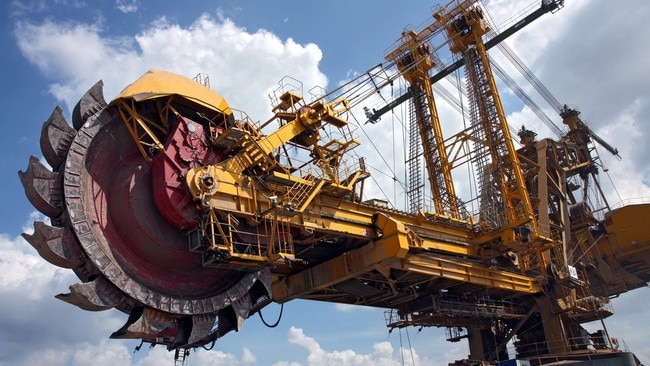Towards a stronger corporate Australia
We cannot be the best at everything, but we should aspire to lead the world when we have an advantage.

How does corporate Australia compare with peer economies? Are we Australians just as adept at creating, scaling and leveraging businesses as the New Zealanders, Canadians and British?
How do our big businesses compare with the best of the best from America and beyond, and what are the latest trends on who has best weathered the Covid storm?
A large and growing corporate sector is vital to the property industry. It is a user of office space, an occupier of warehousing and logistics facilities, a tenant of data centres and it is prepared to pay a premium for the very best property product.
Corporate Australia is the (commercial) property industry’s best friend.
Australia’s biggest businesses
Let’s start with the biggest businesses in Australia.
The are several ways in which publicly listed companies can be ranked, including market capitalisation which is a function of the everyday share price and the number of tradeable shares. The biggest business in Australia by this measure is, and has been for many years, the resources business BHP, headquartered in Collins Street, Melbourne.

Late last week BHP had a market cap of $US154bn, well clear of Australia’s No.2 by this measure – the Commonwealth Bank at $US132bn (see graphic – market cap figures correct as of September 10, 2021).
In one sense, it’s not unexpected that the biggest and most valuable business in Australia should be a mining company. After all, we Australians claim sovereignty over an entire continent; it is in our interests to learn the corporate skills required to create (and to retain ownership of) the world’s biggest mining company.
There are other mining companies in the Australian top 20, namely Fortescue ($US40bn) and Newcrest ($US14bn). The world’s second-biggest mining company, Rio Tinto ($US117bn), with assets in Australia, shifted its head office from Melbourne to London in the 1990s.
Punching above their weight
The biggest business in New Zealand (pop 5 million), software group Xero founded in Wellington in 2006, has a market cap of $US17bn. (Market cap fluctuates daily with share price.)
Canada (pop 38 million) has 46 publicly listed businesses with a market cap of $US14bn and above, compared with 20 for Australia. This may be because Canadian business has access to the adjacent US consumer market with 333 million residents. Or it could be that the Canadians are simply more entrepreneurial than the Australians.
The UK, with 68 million people, has 39 publicly listed businesses with a market cap of $US15bn or more. The largest is Cambridge-based AstraZeneca ($US177bn last week, up from $US117bn in September 2019).

The most valuable company in the US (and indeed the world) is Apple Corporation with a market cap of $US2546bn, up from $US995bn in September 2019.
Apple’s market cap has increased by a flat average of $US15bn per week over the past two years.
Technology businesses in general prospered during the pandemic as work shifted online and as everyday life digitised. Many Australians even did the census online.
Entrepreneurship is often tracked by citing evidence of start-ups, however, it can also be measured by growth in the value of existing businesses and especially in a changing market.
Apple’s growth in market cap since 2019 is equivalent to adding the value of an Australian Afterpay ($US27bn) business every two weeks for 24 months.
Indeed, in terms of scale, today’s Apple Corporation is to the 21st century what the Dutch East India Company (or VOC) was to the 17th century: the world’s dominant corporate entity with a footprint (or influence) in most countries.
(Some economists have placed the value of the VOC at close to $US8000bn in today’s dollars so maybe Apple has a way to go yet.)
Competitor countries
The issue of corporate depth and independence is critical to shaping the Australia we want for the future. We are a small nation well removed from the major centres of business in the northern hemisphere.
The threat to Australia (and to New Zealand) is that throughout the 2020s our economies may not offer sufficient depth to hold, let alone to attract the requisite skills to develop and scale local enterprise.
In this world Australia and New Zealand would be at risk of being regarded as little more than quite pleasant regional office postings for global corporates.
Without a critical mass of Australia-based head-office decision-making capabilities in the corporate sector, the next generation of young Australians (and New Zealanders) will likely seek to test their mettle in the dynamic markets of the US and China.

So, what can we do to develop and scale corporate Australia?
There is ample evidence of small nations supporting global businesses:
● Denmark (pop 6 million), for example, is home to the pharmaceutical group Novo Nordisk founded in 1923 which has a market cap of $US228bn (or about one-and-a-half BHPs);
● Singapore (pop 6 million) is global headquarters for online video game developer Sea (Garena) founded in 2009 which has a market cap of $US174bn;
● Taiwan with a similar population base as Australia (24 million) is home to the Taiwan Semiconductor Manufacturing Company (TSMC) founded in 1987, which has a market cap of $US636bn (about a quarter of an Apple);
● South Korea generates about the same GDP as Australia and yet its economy supports the Samsung conglomerate with a market cap of $US435bn.
Interestingly, electric car manufacturer Tesla has a market cap ($US756bn) which is three times that of Japan’s biggest business Toyota ($US251bn).
The market cap method of valuation is an assessment of (and hope for) future value via the share price.
Missed opportunities
Returning to corporate Australia there is evidence in the top 20 of new businesses such as software group Atlassian founded in 2002, and the Afterpay group founded in 2014.
However, there is no evidence at this scale of any agribusiness business. (Wesfarmers is mostly a retailing business.)
There are large agribusiness co-operatives in Australia. However there’s nothing publicly listed that is even close to the scale of the JBS ($US15bn) meat processing business based in Sao Paulo, Brazil, and which operates throughout Australia.
If a young Australian wanted to work in any of the world’s leading mining companies there’s no need to look any further than Melbourne or Perth. But if a young Australian wanted to work in any of the world’s leading (publicly listed) agribusiness businesses then they would have to look overseas.
I understand that the world’s best technology companies are based in Silicon Valley and that the world’s biggest finance and banking businesses are based in New York.
However, as with mining, agribusiness should be a sector in which Australia develops business entities and corporate expertise.
And yet with the sole exception of Treasury Wine Estates ($US6bn) we have nothing publicly listed that compares with, say, New Zealand’s Fonterra ($US4bn) and the a2 Milk Company ($US3bn).
Why didn’t Australia develop a global agribusiness business that perhaps started out in wool in the 19th century but then expanded into dairy, sugar, meat processing, fruit and viticulture by the late 20th century?
And that then went on to snap up agribusiness assets in New Zealand, Brazil, South Africa, Canada and the US’s Minnesota?
BHP did it in mining. Why didn’t we do it in agribusiness?

Every year the Australian university sector dissects global rankings that reveal how “our universities” have fared relative to others. There was much jubilation in August when the University of Melbourne lifted its ranking to position No.32 globally.
On a global ranking of publicly listed businesses measured by market cap, Australia’s most valuable corporate entity (BHP) ranks 86th.
Smaller countries like Ireland, Denmark, Singapore, Switzerland, The Netherlands, and Taiwan all support bigger businesses than BHP.
There may well be very good reasons why Australia is not generating multiple high-value publicly listed businesses as does, say, Canada. Indeed it may be that Australia has greater depth in mid-tier corporates, in the family business sector, in the scale of co-operatives, in the small business sector.
Building a stronger sector
However, there is an opportunity at hand: the pandemic has attracted “home” a vast pool of expat Aussies with corporate skills and who are possibly looking for local opportunities.
When the lockdown finally lifts it is not in our interests to have this lot make a beeline for New York or Silicon Valley, quietly thinking to themselves “nothing’s changed”.
Now is the time to think strategically about how to create a better Australia for the 2020s and beyond.
This future version of Australia would be secure, prosperous and fair; it would be capable of offering opportunity for the young regardless of whether they aspired to work in academia, in mining, in agribusiness or in technology.
We cannot be the world’s best at everything, but we can – and we should – aspire to lead the world in those sectors in which we have a natural advantage. This would include mining; it should include agriculture; and no doubt there are other sectors too where moderately-scaled Australia can rank among the best of the best. Now is the time to be daringly, boldly ambitious.
Bernard Salt is executive director of The Demographics Group; research and data by Hari Hara Priyah Kannan








To join the conversation, please log in. Don't have an account? Register
Join the conversation, you are commenting as Logout